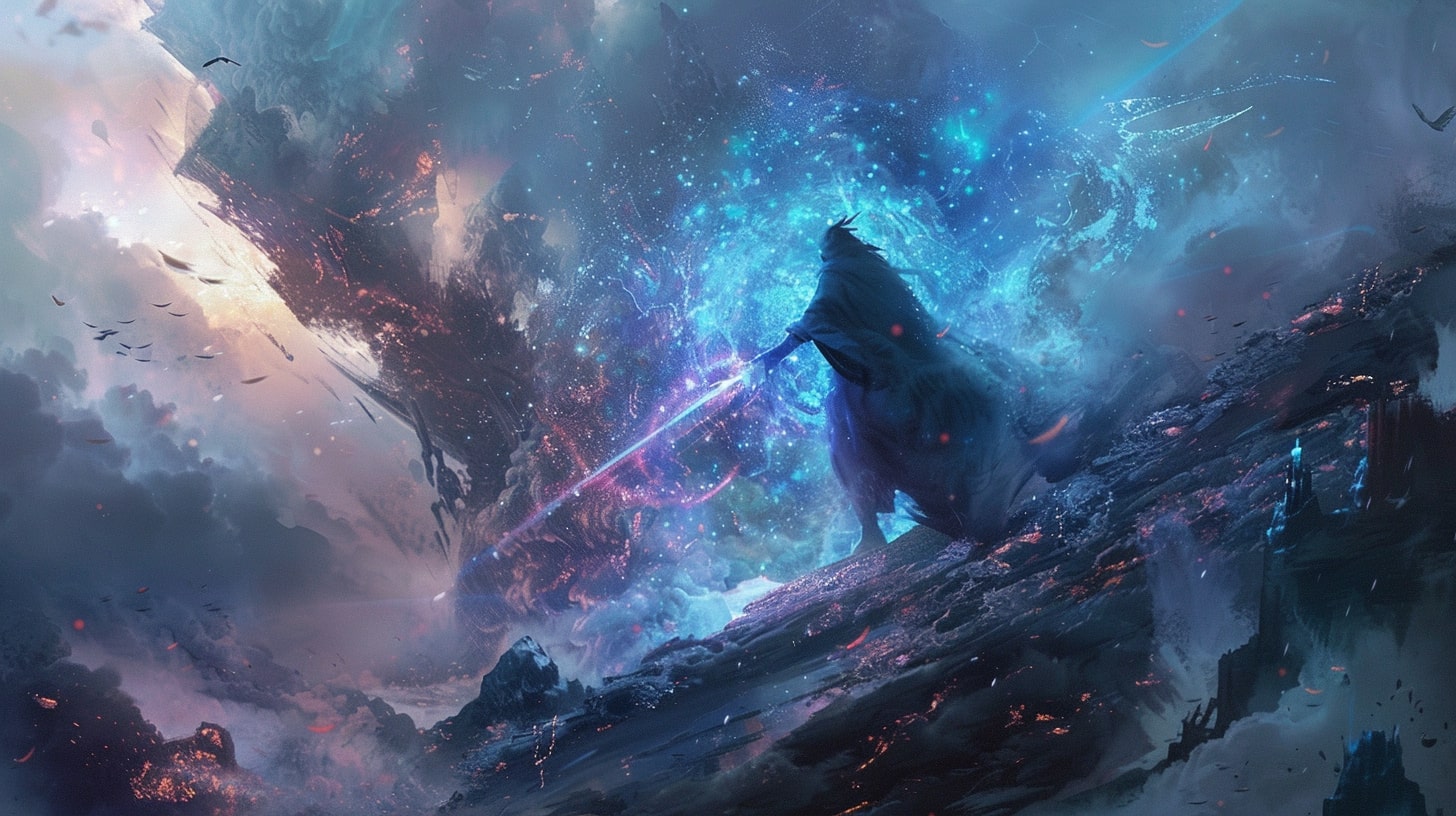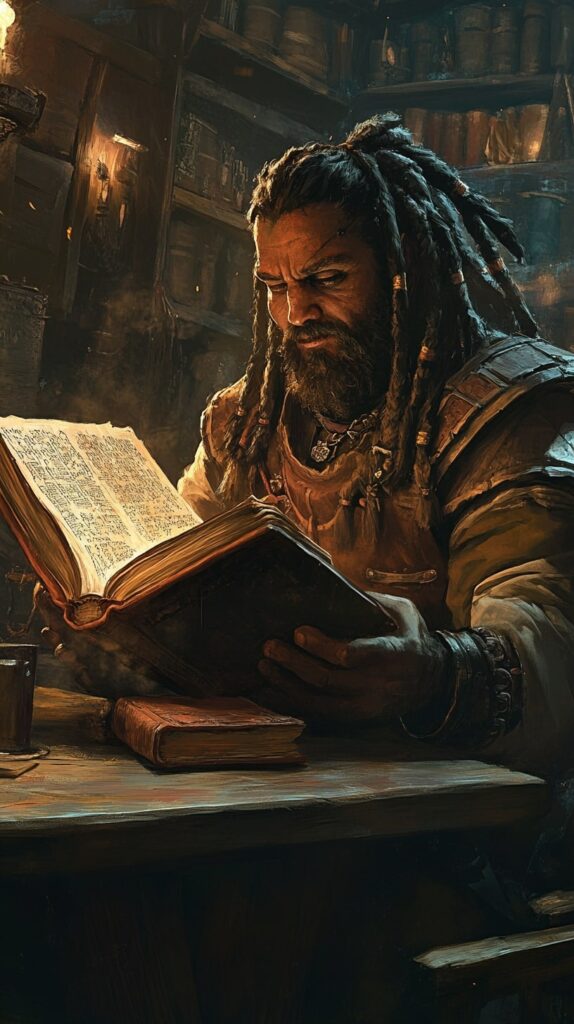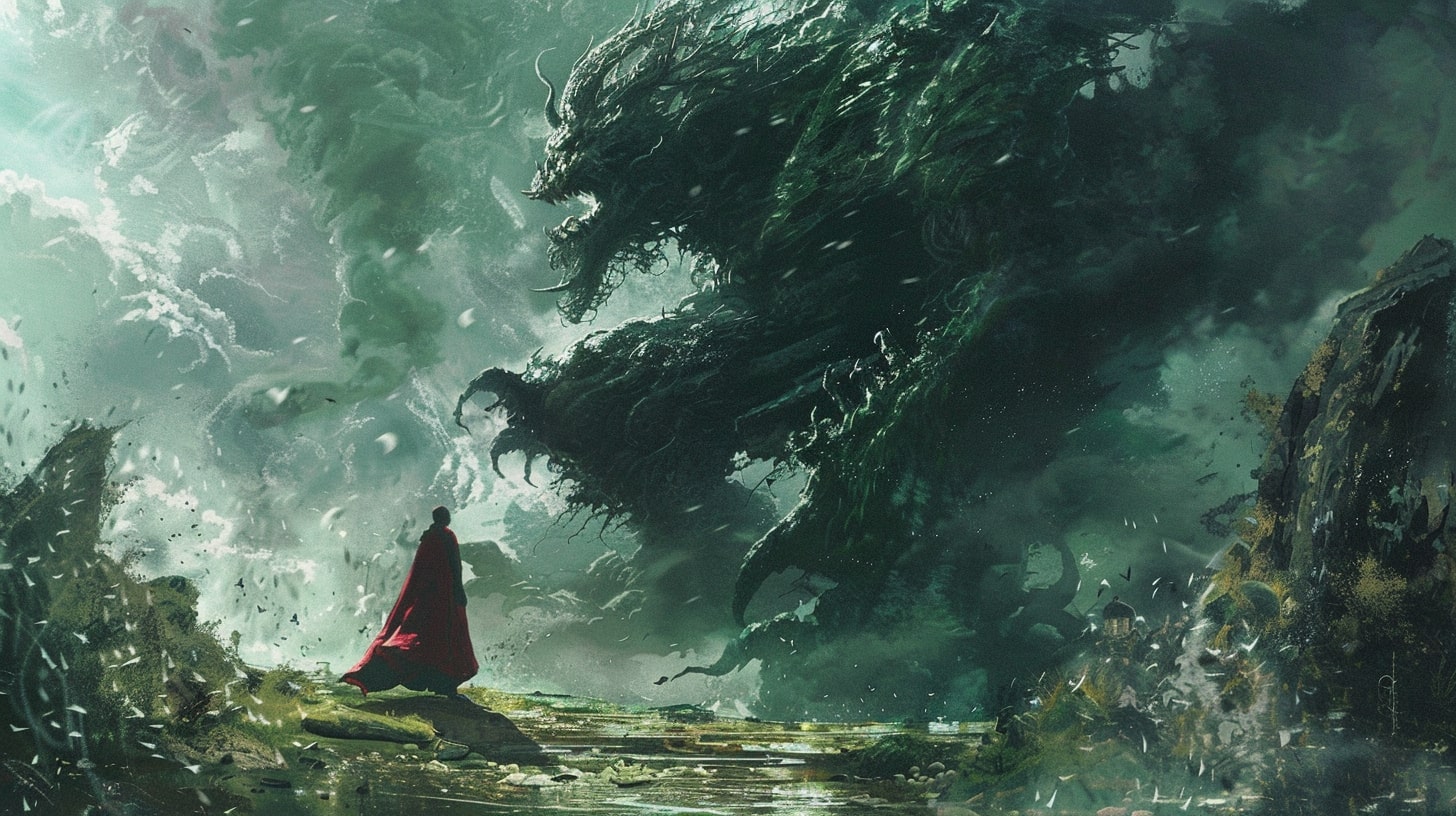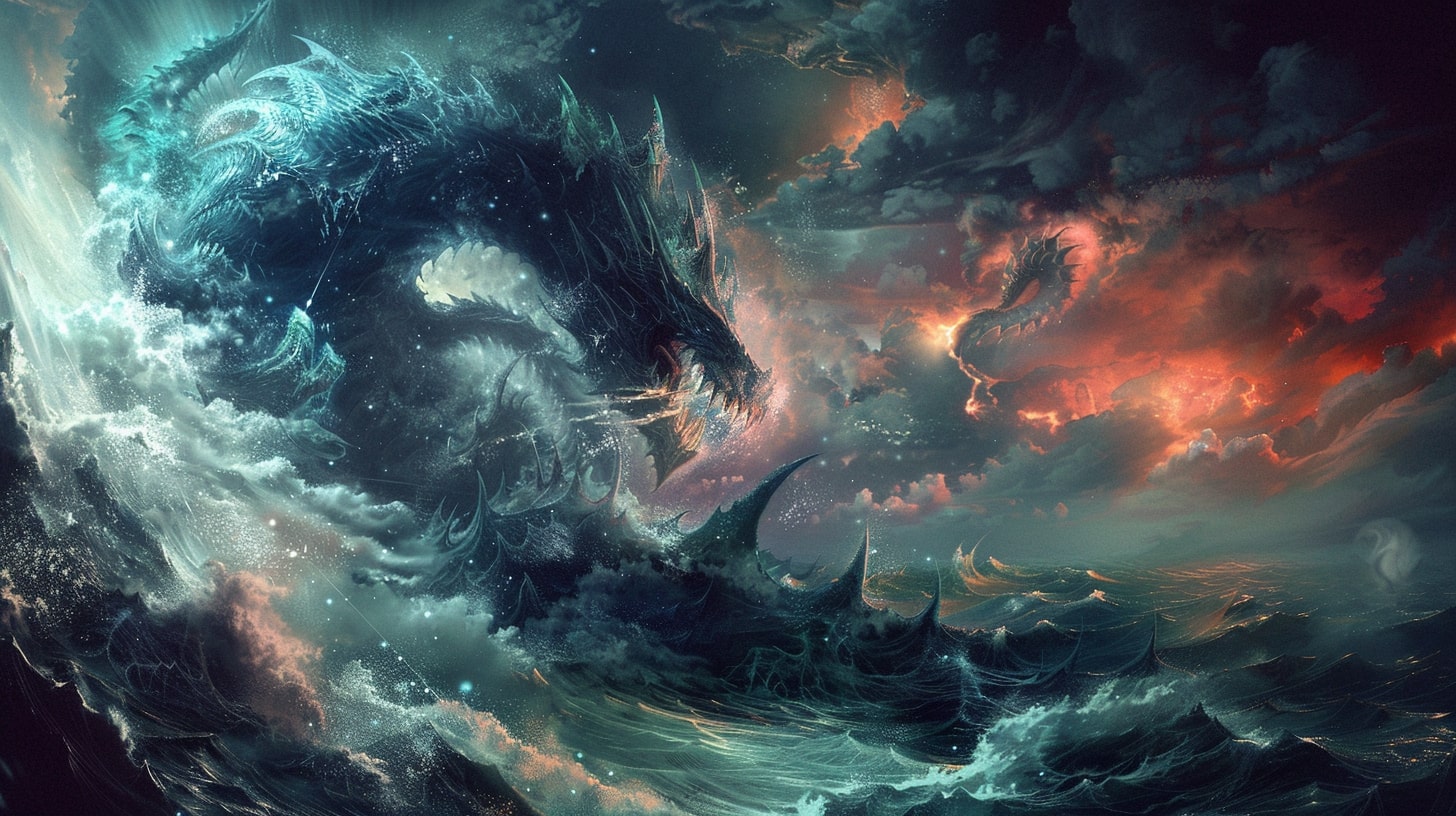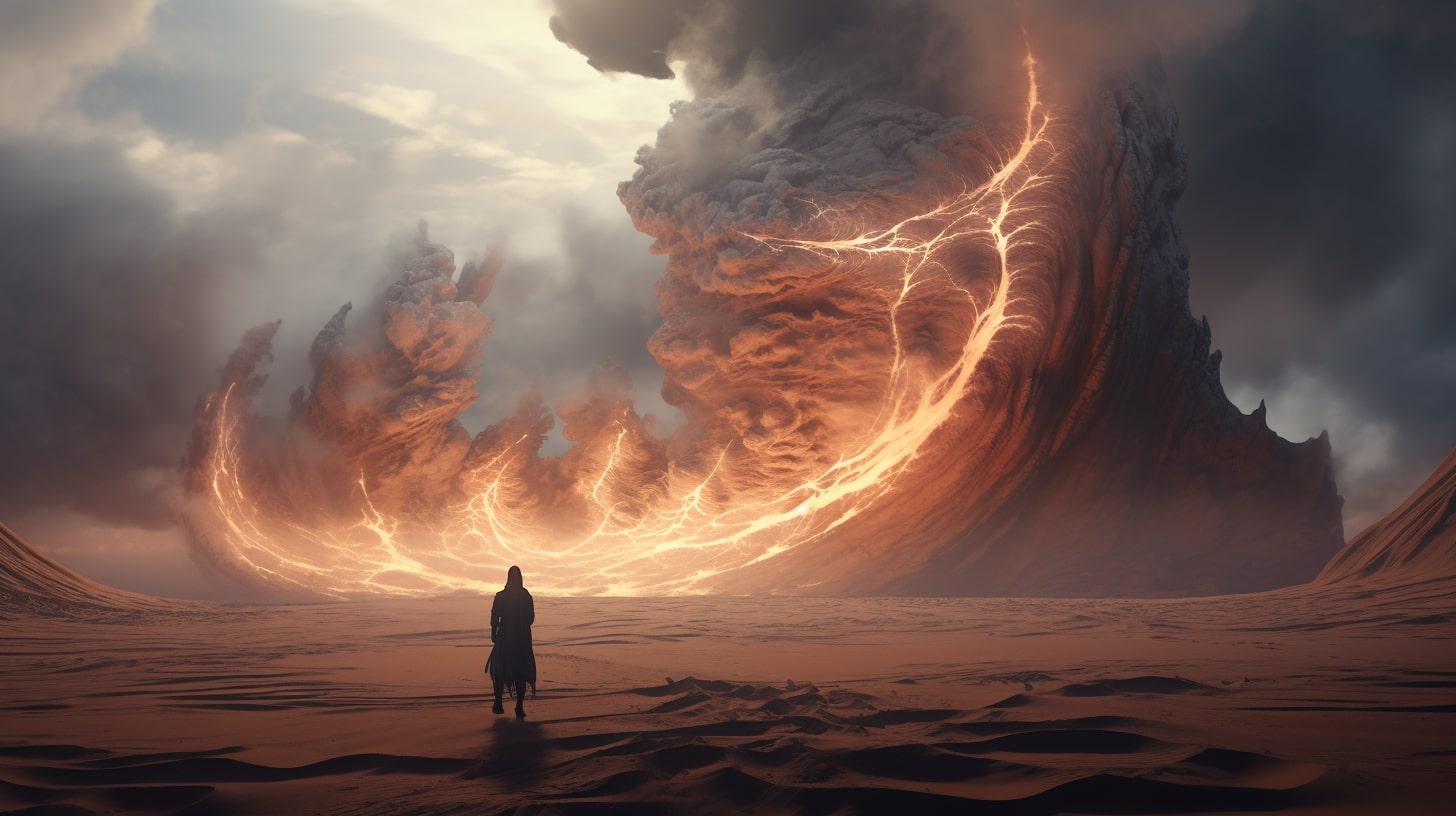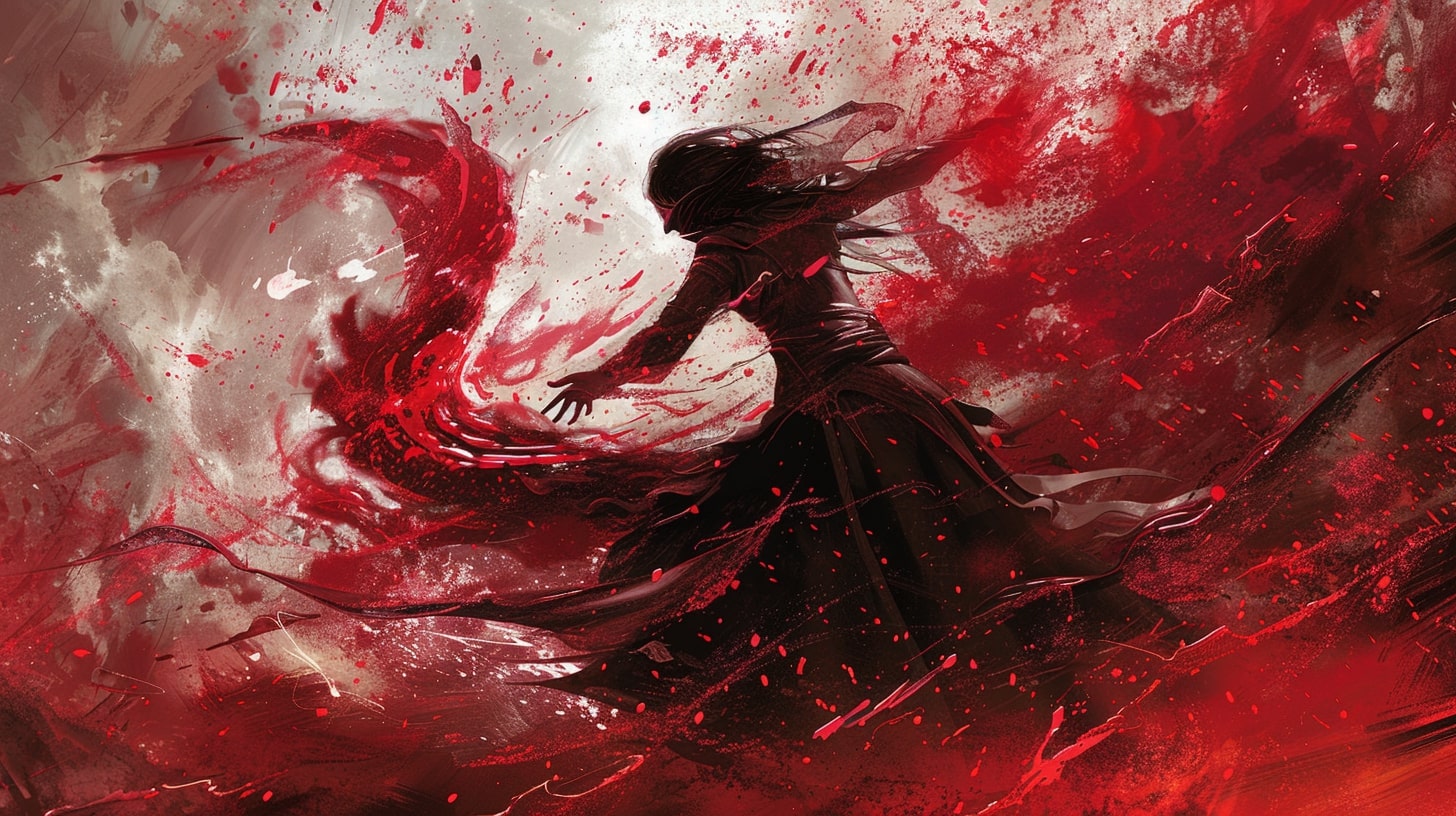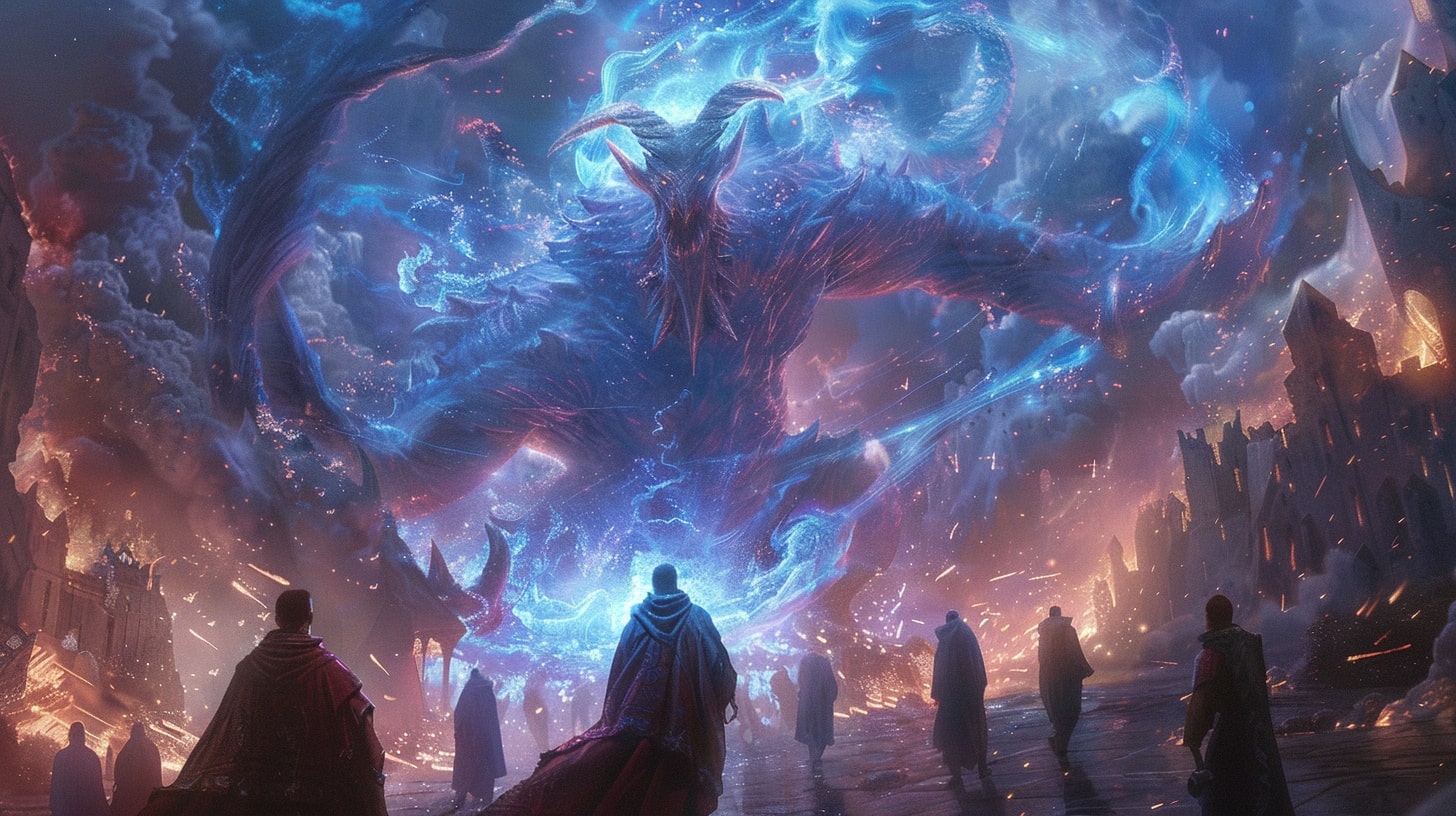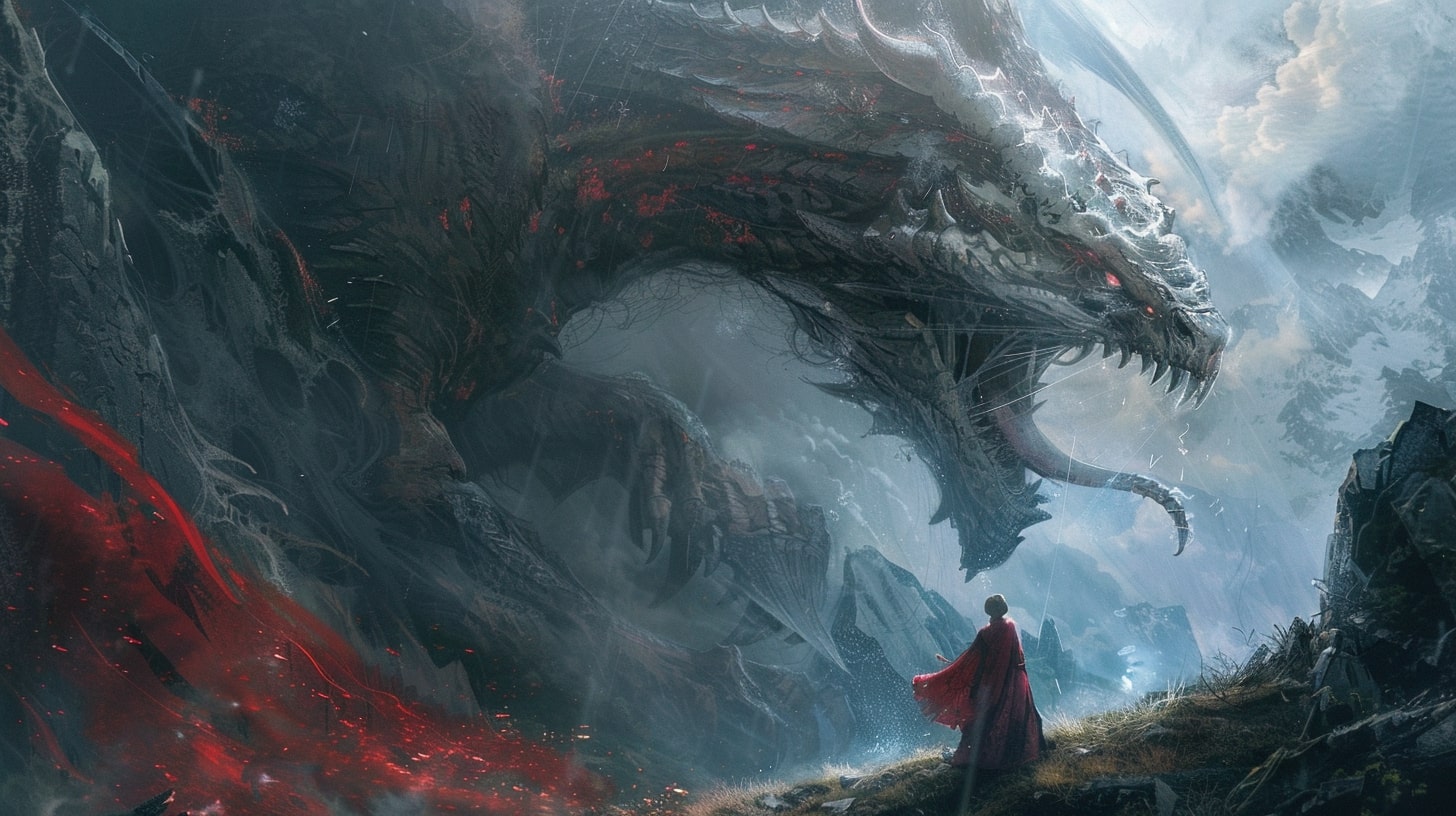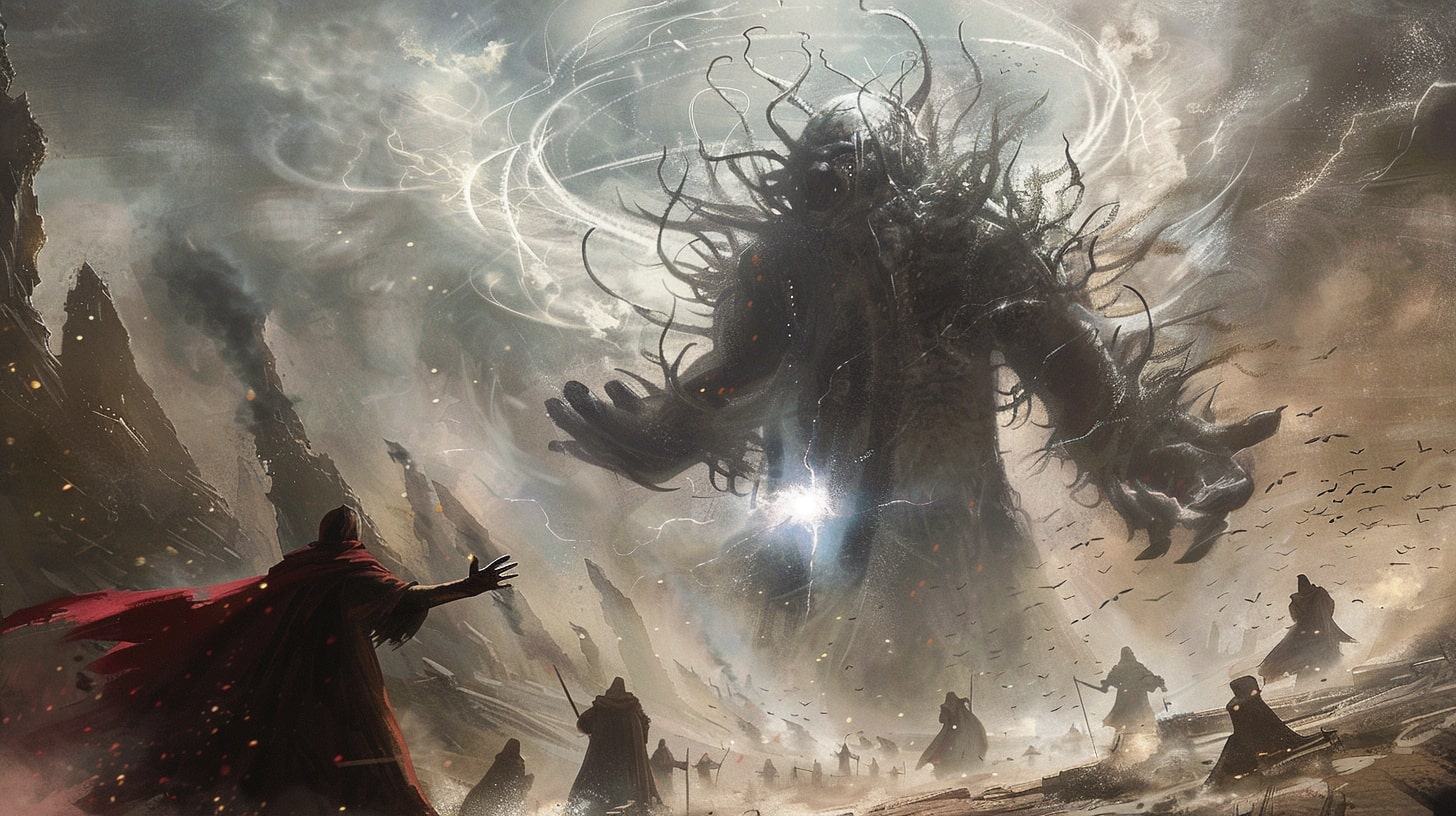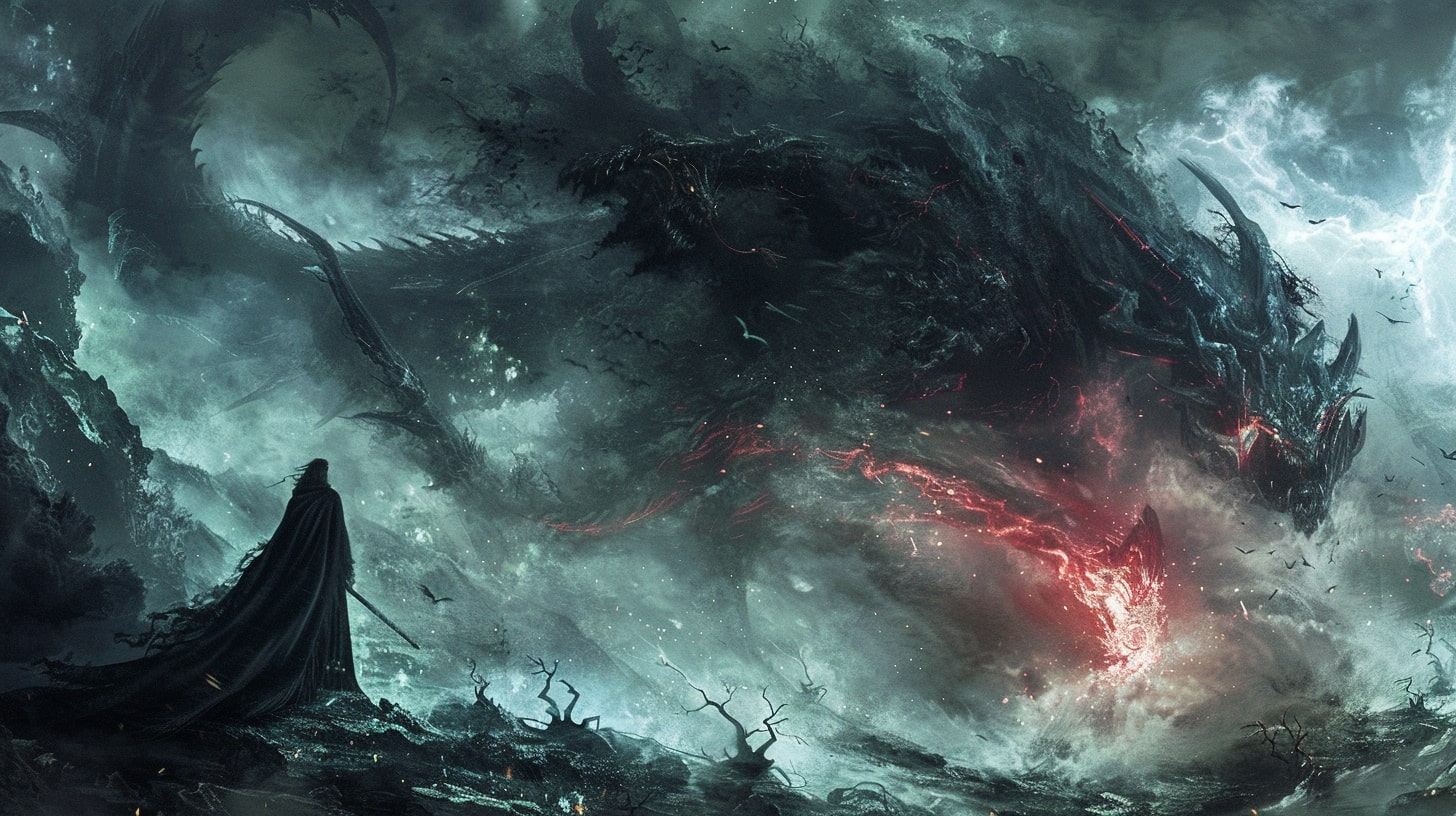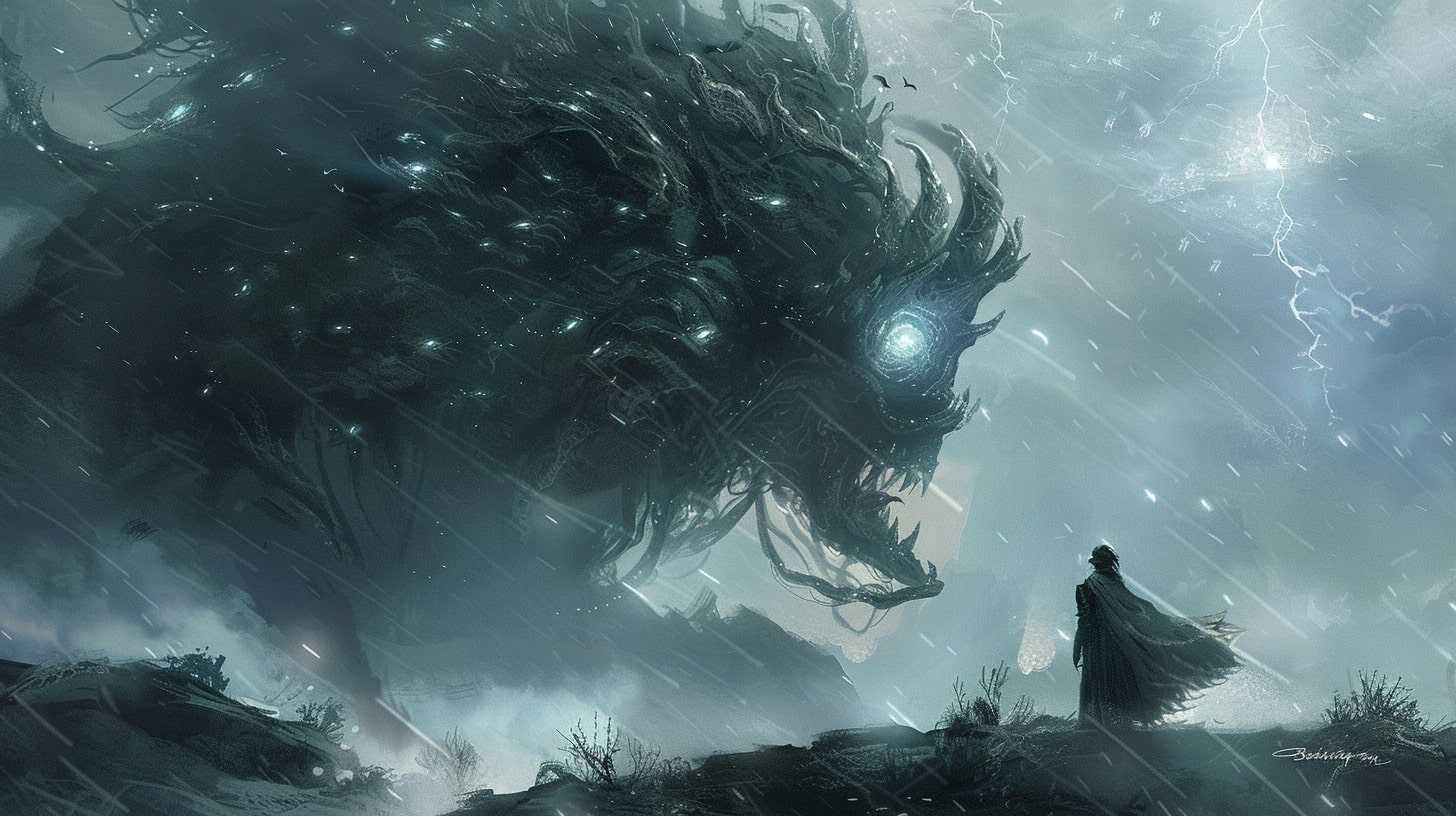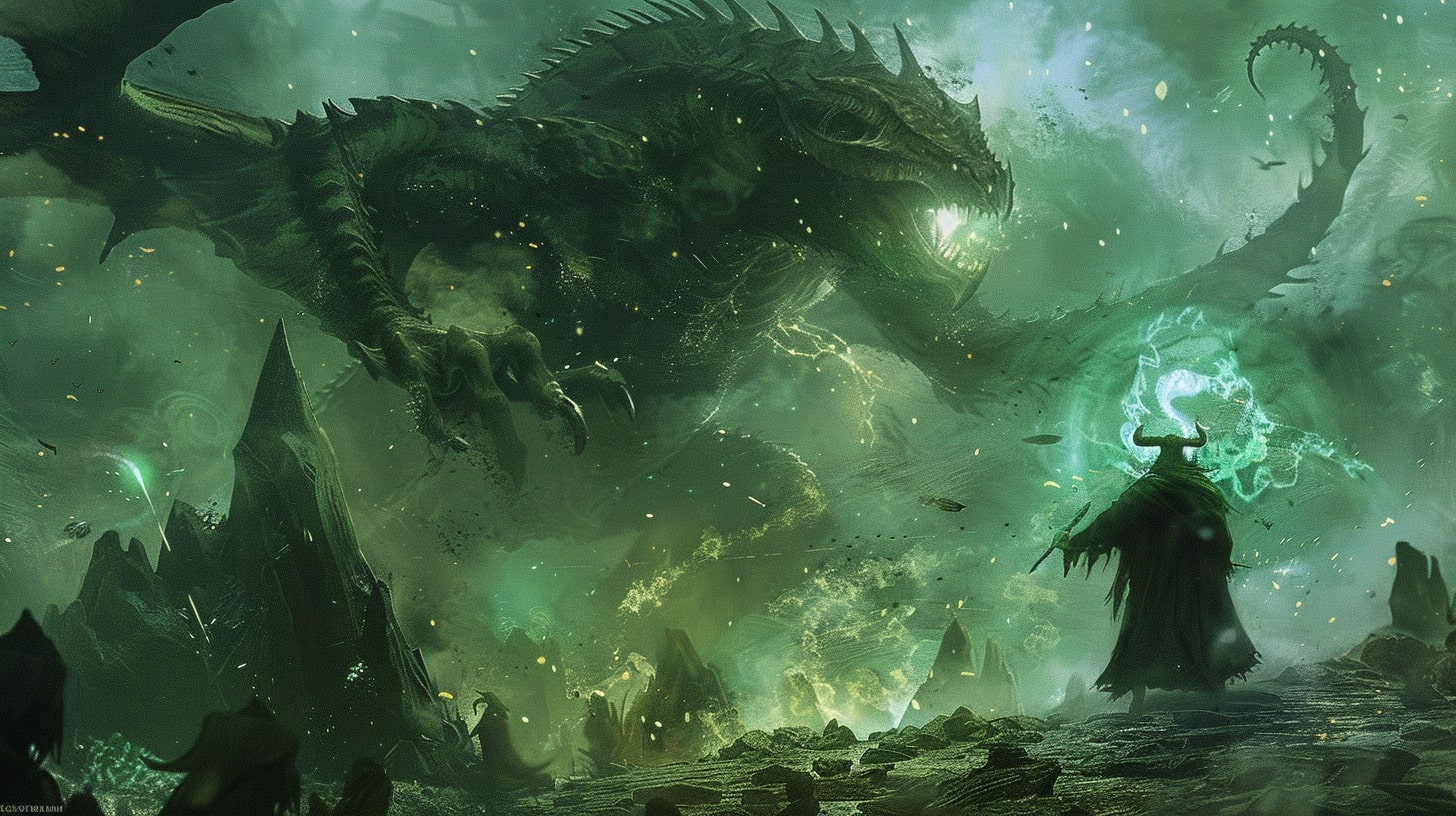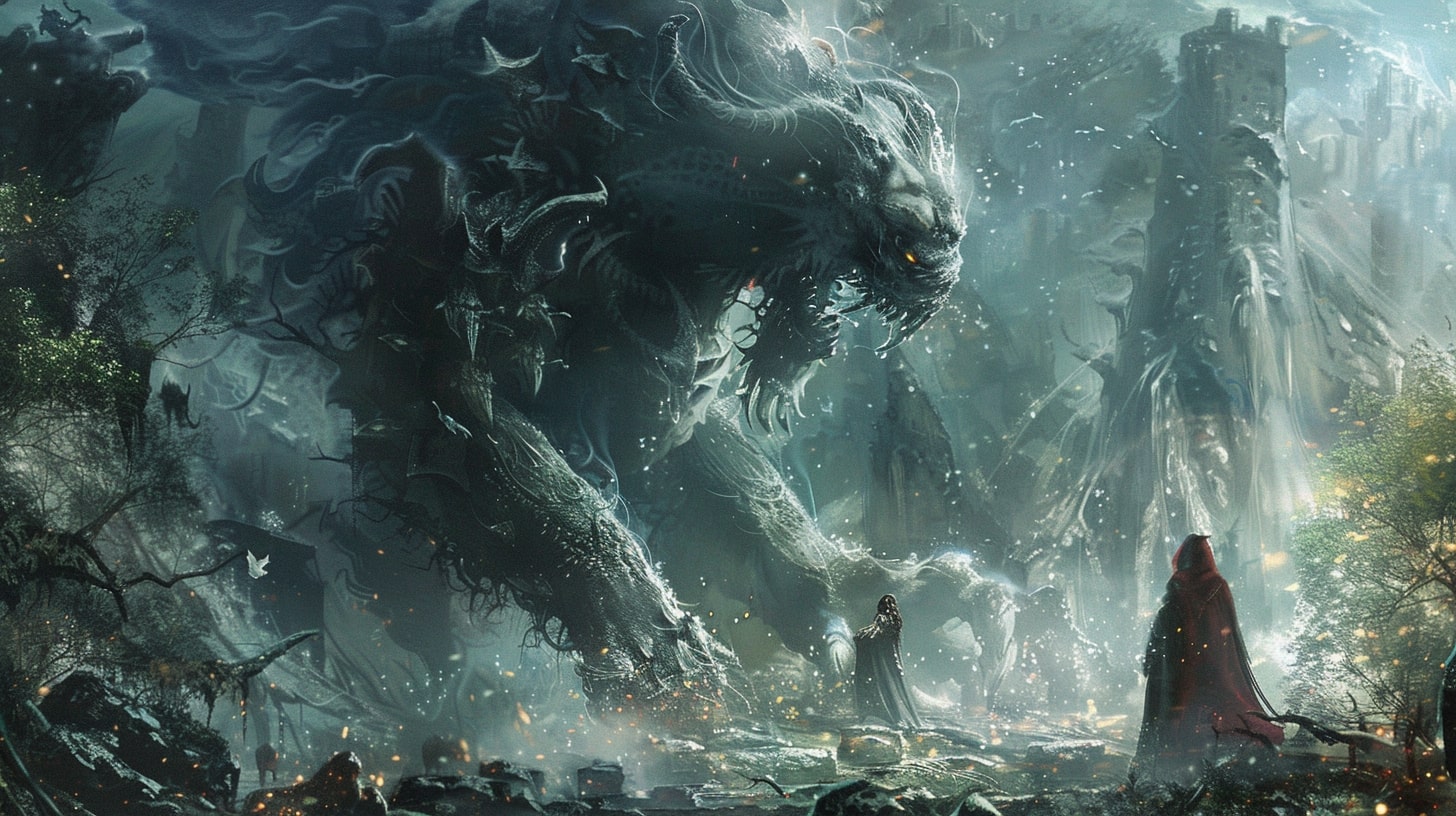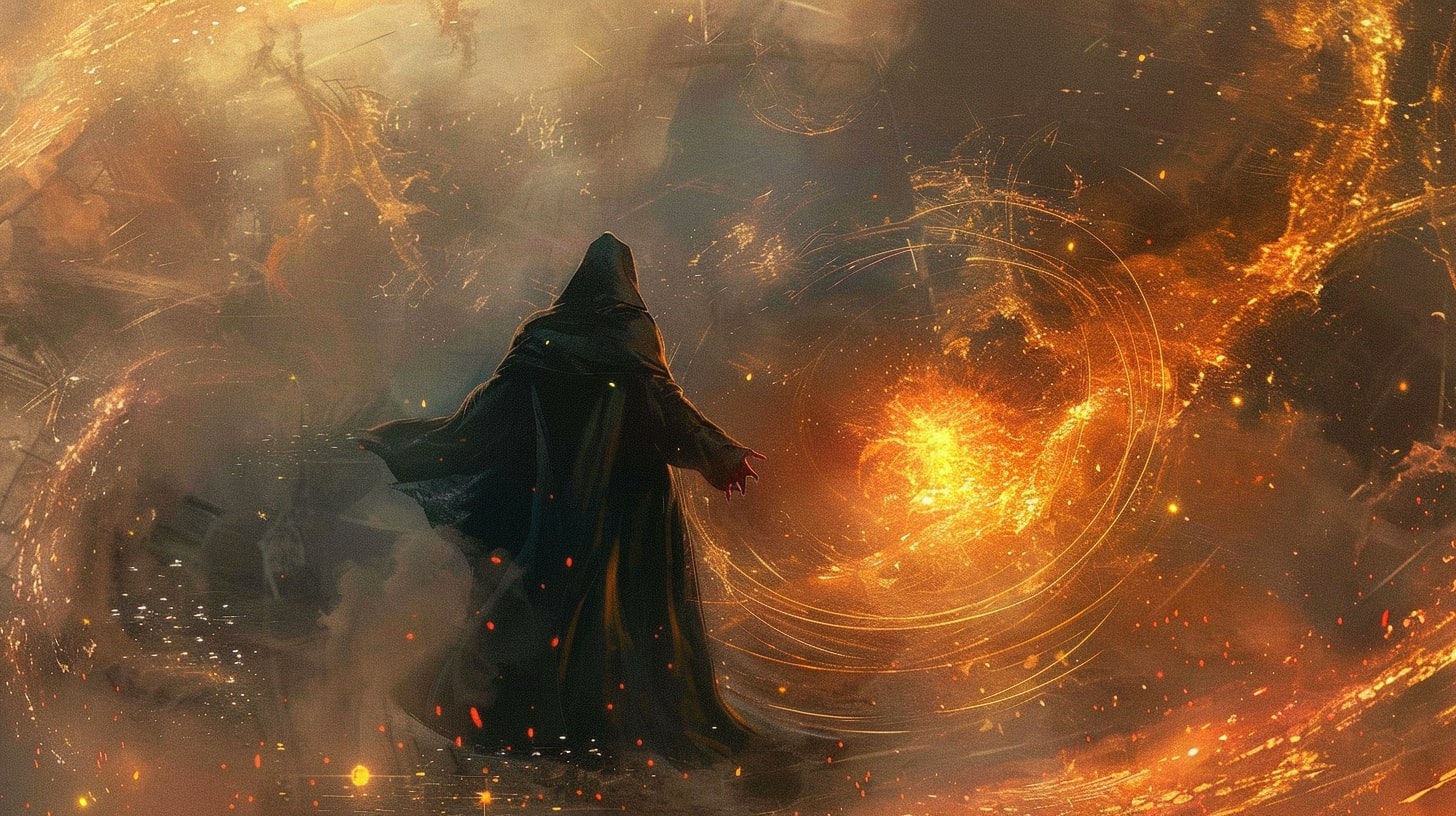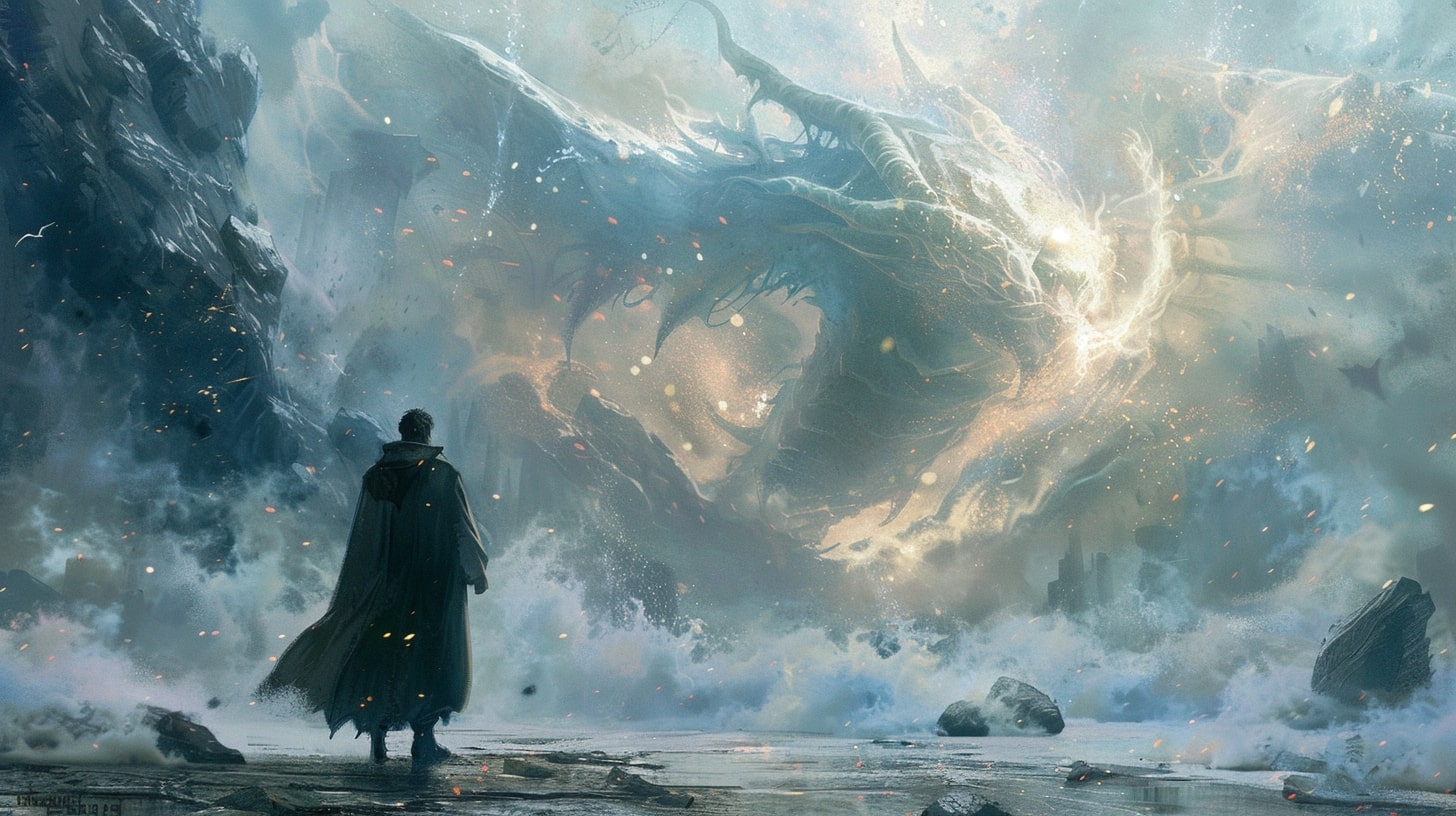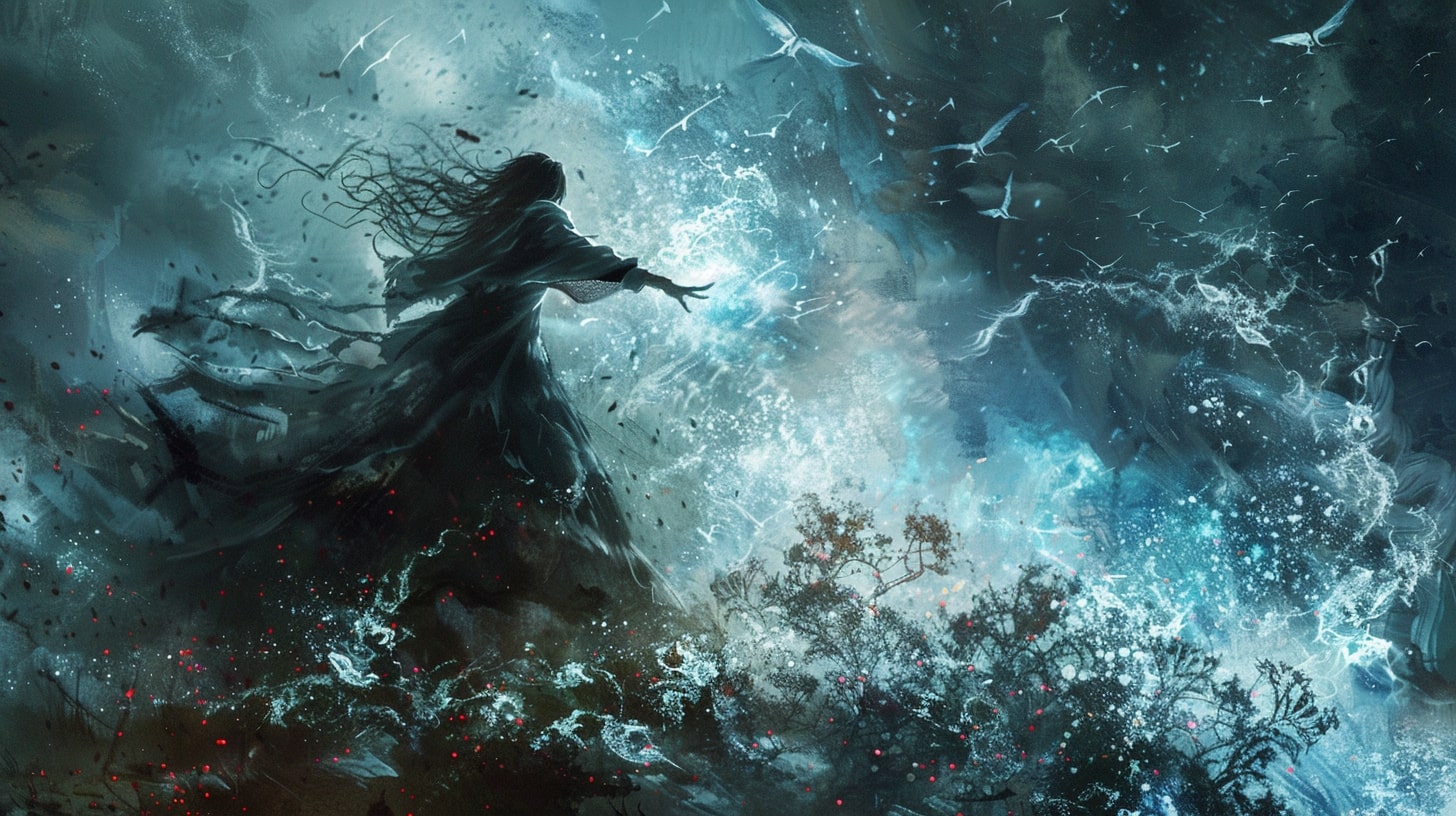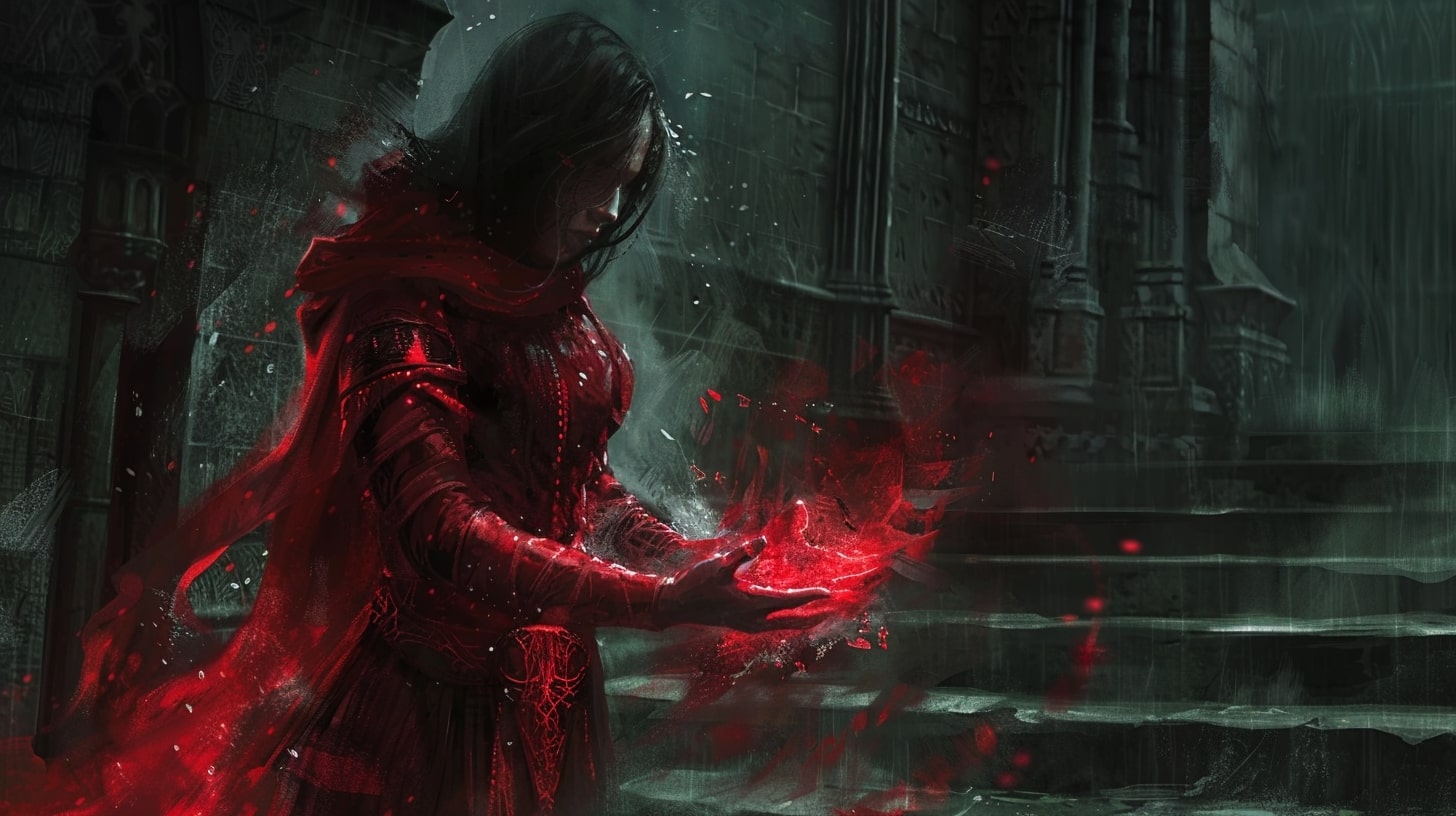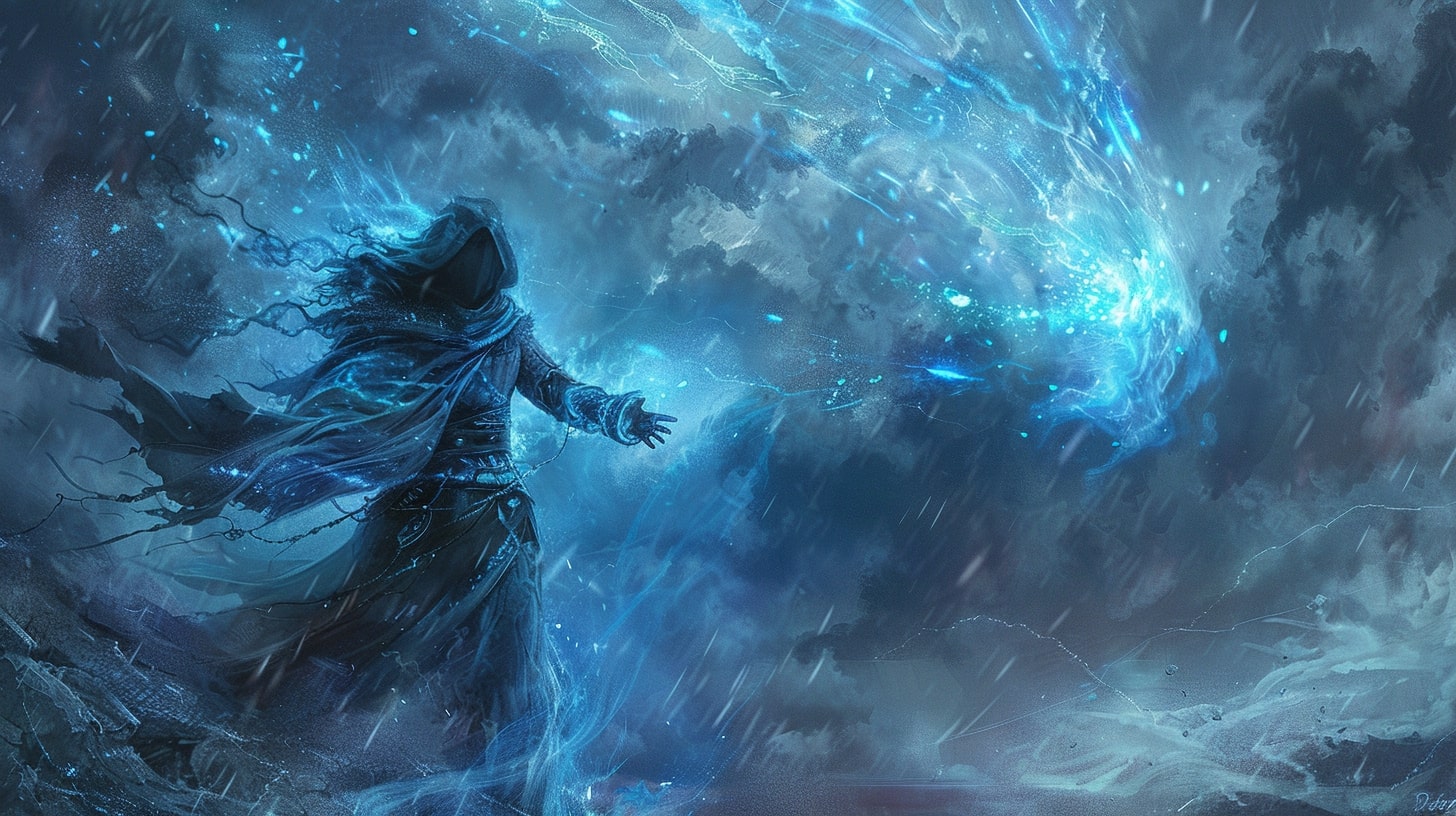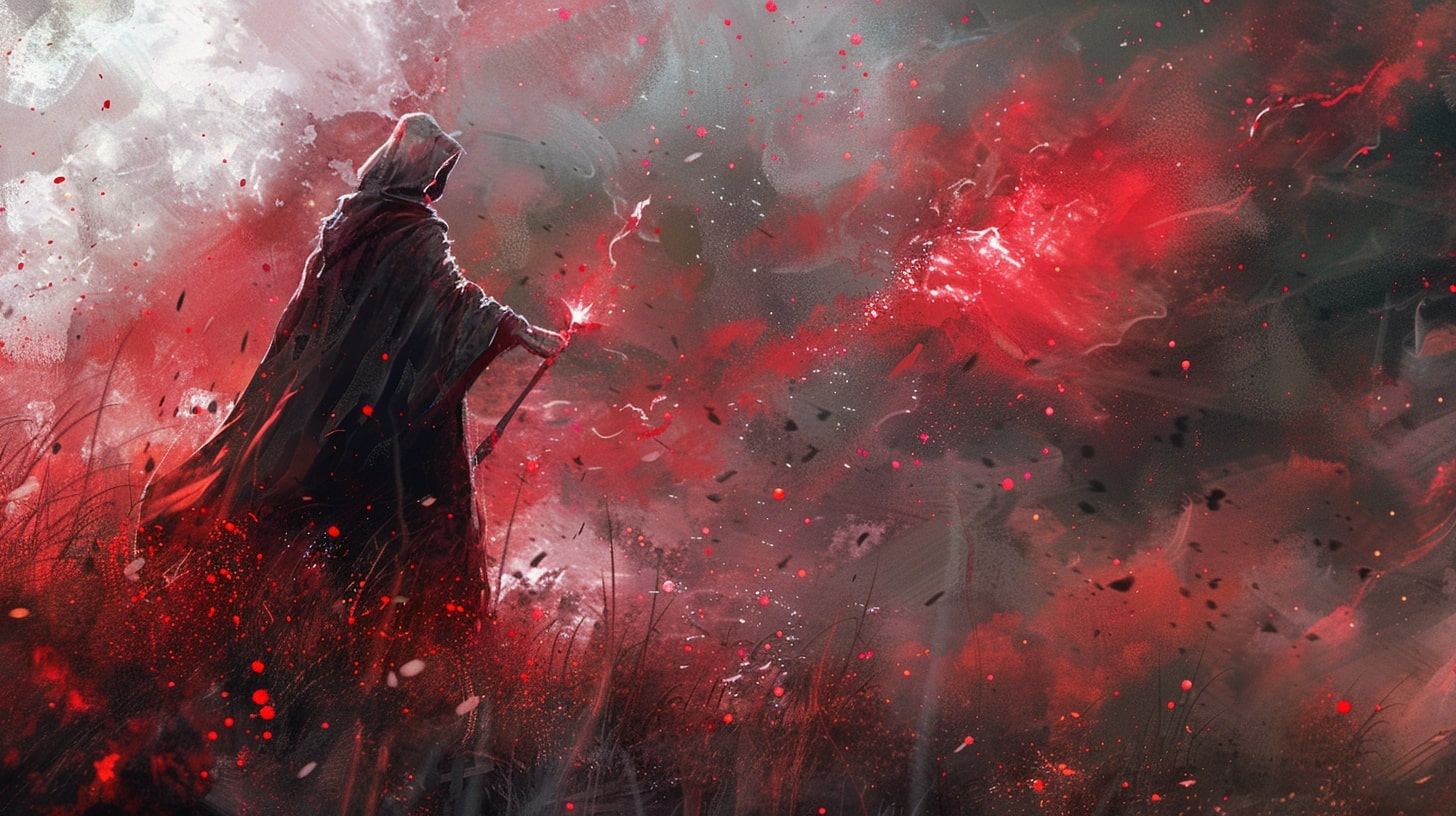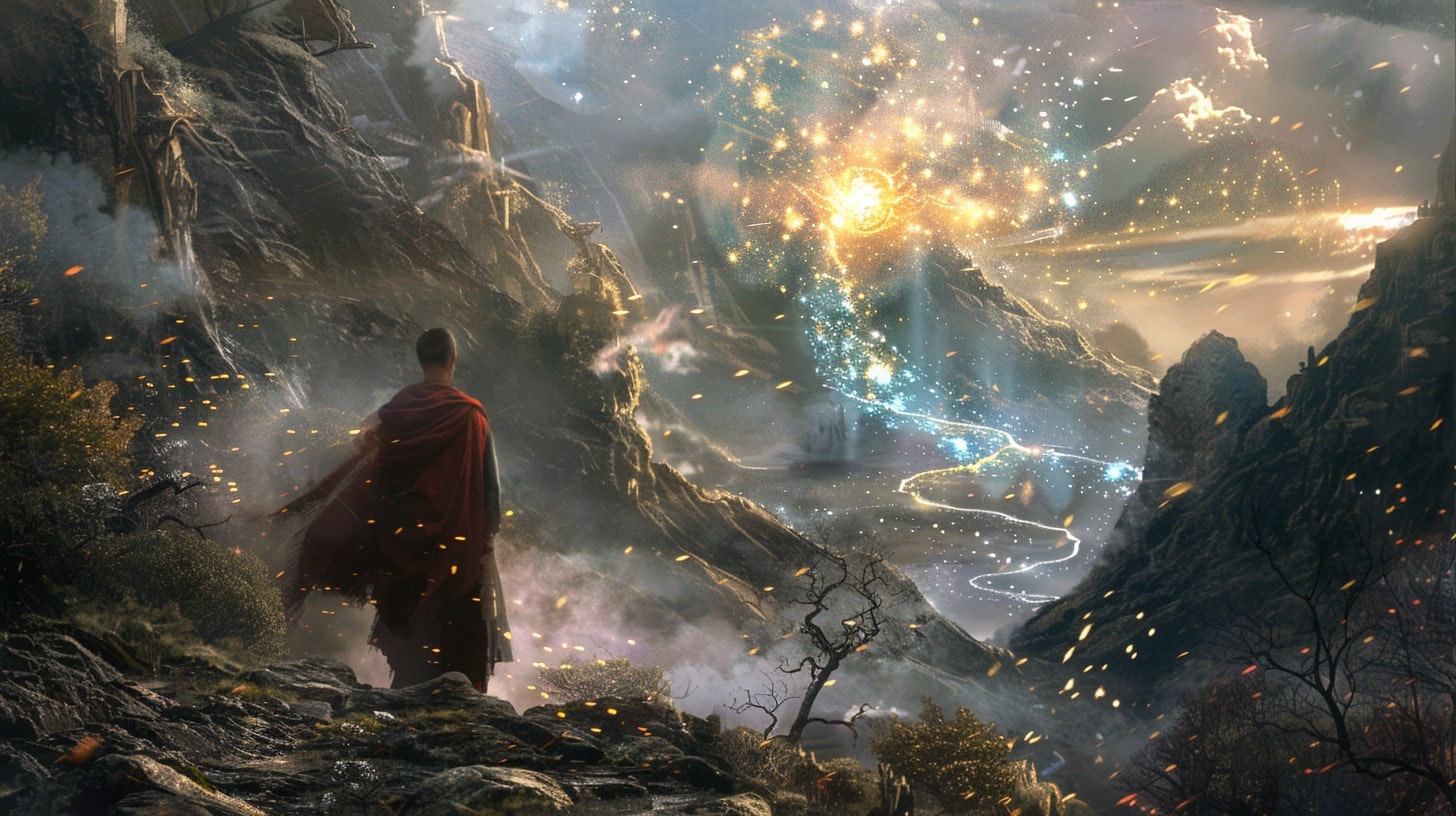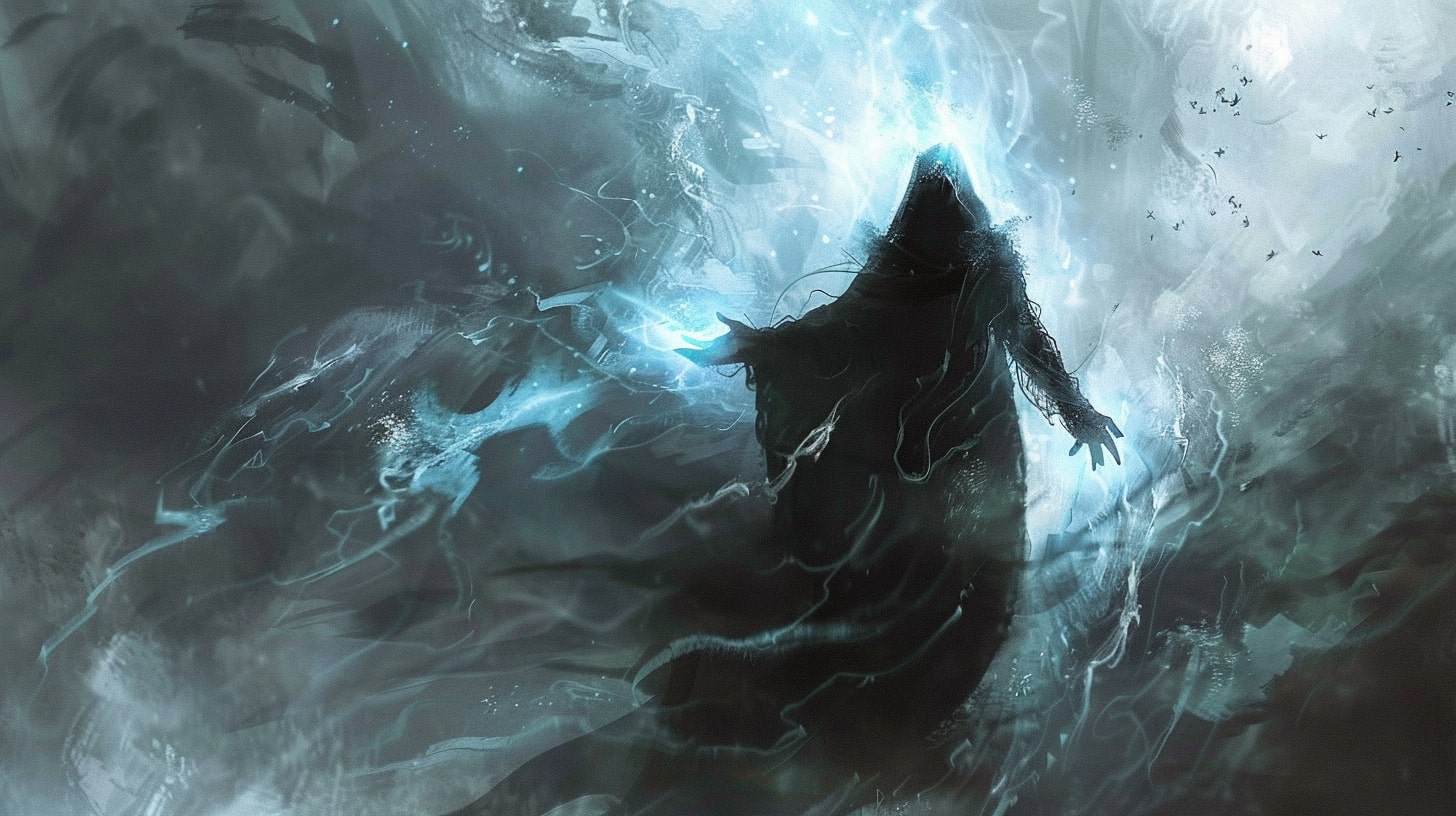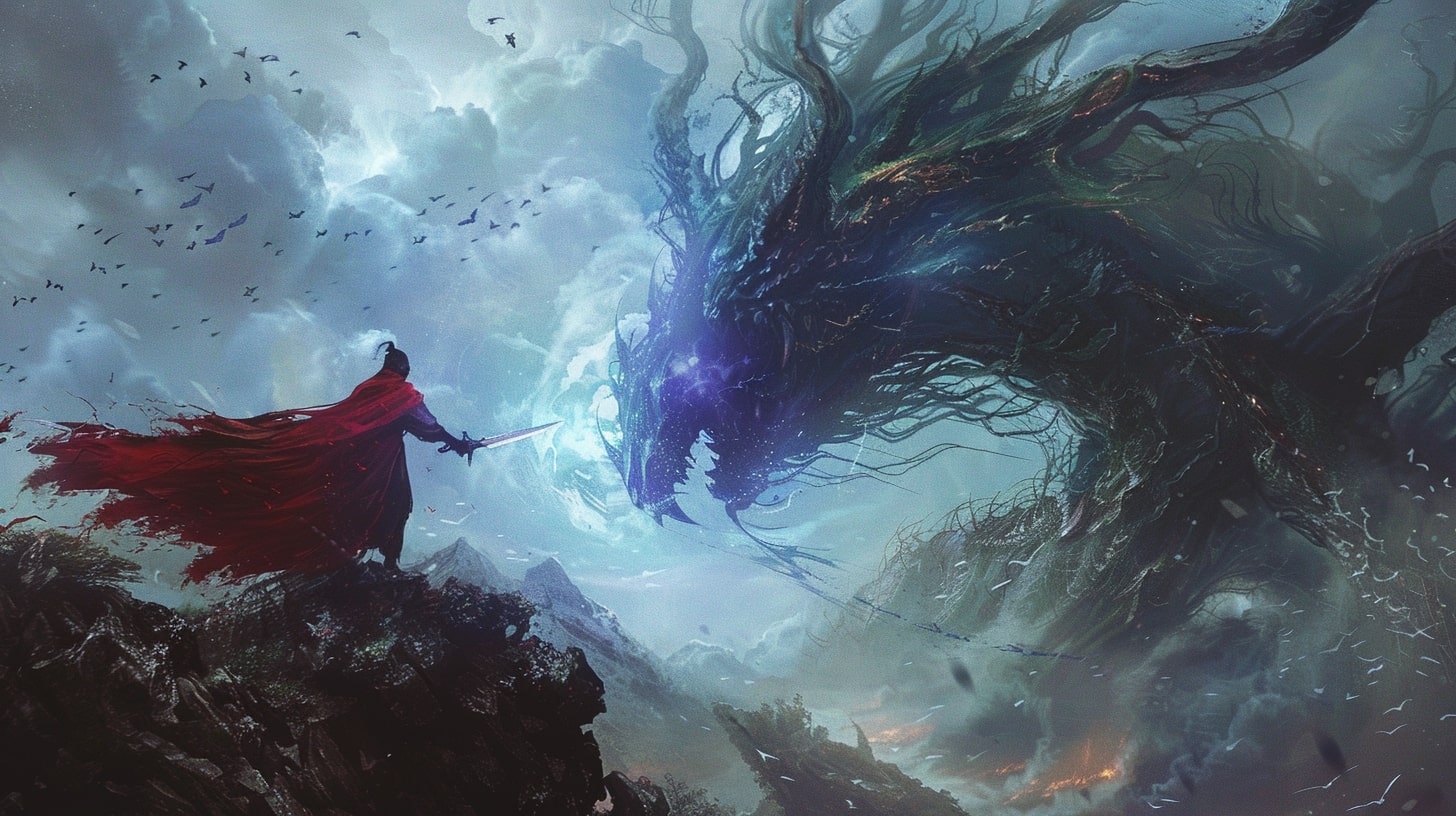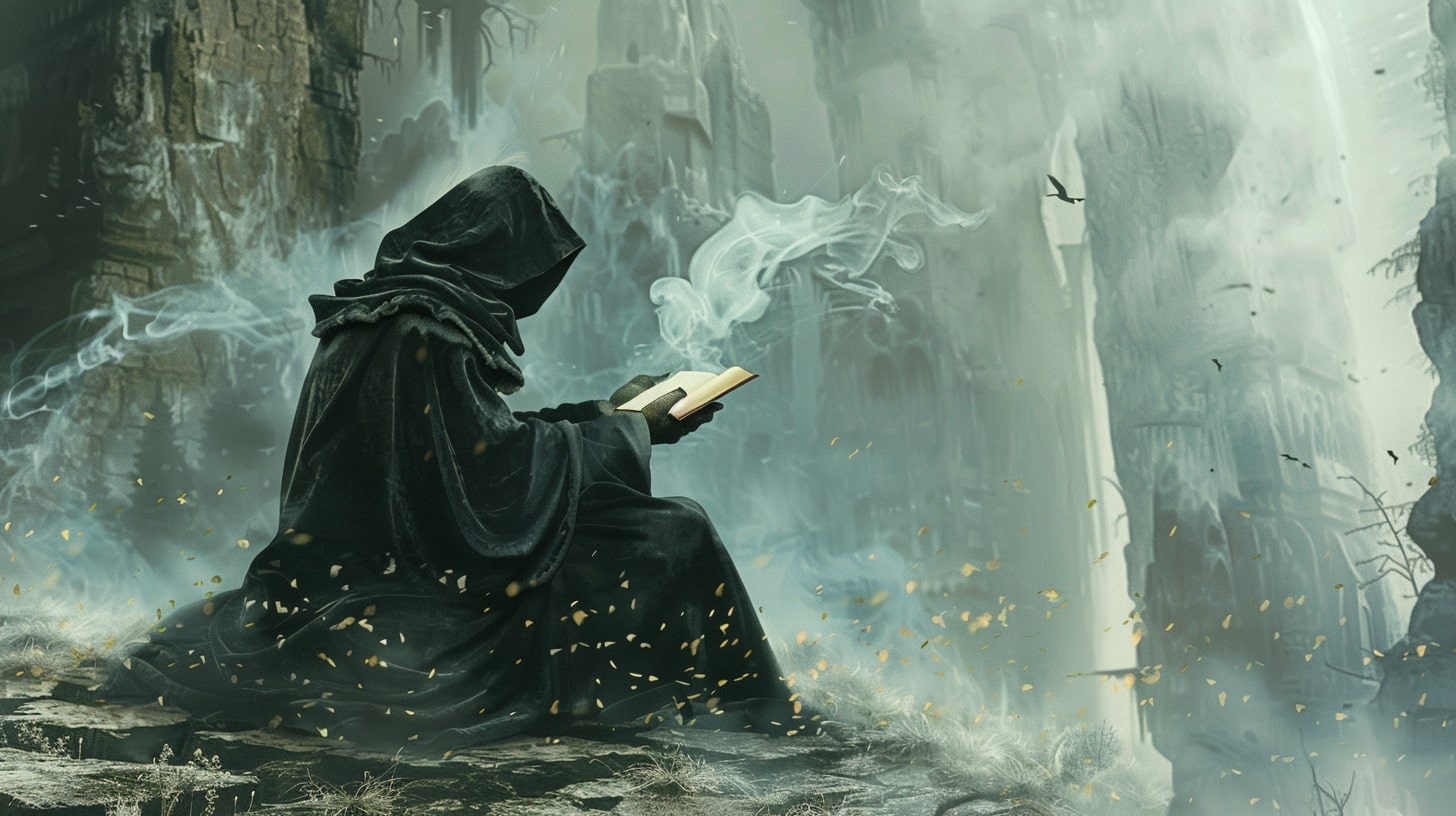The World of Magic Systems
Welcome to the enchanting world of magic systems, where the limits of reality are stretched and imagination knows no bounds.
As a fantasy writer, you have the power to create intricate and captivating worlds filled with mystical forces and awe-inspiring abilities. In this section, we will delve into the fascinating realm of magic systems, starting with an introduction to the concept and the importance of a well-defined magic system hierarchy.
Introduction to Magic Systems
Magic systems are the backbone of many fantasy stories, providing a framework for the supernatural elements that shape the world and its characters. These systems define the rules, limitations, and mechanics governing the use of magic within your narrative.
From elemental magic to divine powers, the possibilities are vast and varied. As you embark on your journey of worldbuilding, it’s essential to develop a magic system that aligns seamlessly with your story’s themes and enhances the overall narrative.
To ignite your imagination and spark ideas for your magic system, check out our article on magic system ideas. It explores different concepts and approaches that can serve as a springboard for your own unique magical creations.
Importance of a Well-Defined Hierarchy
In the realm of magic systems, hierarchy plays a crucial role in establishing the structure and balance of power. A well-defined hierarchy determines the distribution of magical abilities and sets the stage for conflicts, alliances, and character development. It establishes a sense of order and allows readers to understand the dynamics of the magical world you’ve crafted.
By establishing a hierarchy, you can create a sense of progression and growth for your characters. From novice spellcasters to master sorcerers, the journey up the hierarchical ladder can be a compelling arc that drives the story forward. Additionally, a hierarchy can introduce tension and conflict as characters compete for higher ranks or grapple with the consequences of their magical abilities.
To delve deeper into the impact of magic system hierarchy on storytelling, read our article on magic system worldbuilding. It explores how the hierarchy influences the narrative and offers insights into creating conflict and tension within your magical world.
As you develop your own magic system hierarchy, consider the balance between complexity and coherence. A hierarchy should be intricate enough to add depth to your world but not so convoluted that it becomes overwhelming or confusing for your readers. For guidance on designing a hierarchy that strikes the right balance, explore our article on magic system balance.
In the realm of fantasy writing, magic systems are a captivating element that can transport readers to extraordinary worlds. By crafting a well-defined hierarchy, you can unleash the full potential of your magical realm and create a captivating narrative that leaves readers spellbound.
So, channel your creative energies and let the magic flow as you embark on the journey of developing your own unique magic system hierarchy.
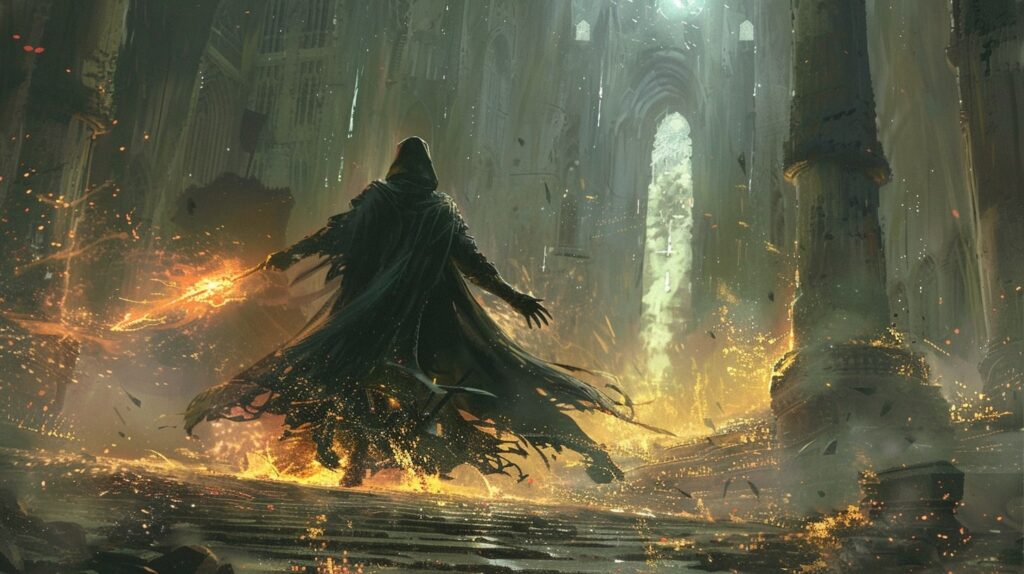
Understanding Magic System Hierarchy
In the realm of worldbuilding and fantasy storytelling, magic system hierarchy plays a crucial role in shaping the dynamics and rules of a magical world. By establishing a hierarchy, you can define the power structures and relationships within your magical system. Let’s delve deeper into what a magic system hierarchy entails and the key elements that contribute to its construction.
What is a Magic System Hierarchy?
A magic system hierarchy refers to the organization and classification of magical abilities and practitioners within a fictional world. It determines the varying levels of power, expertise, and authority among individuals who possess magical capabilities. The hierarchy can be based on factors such as innate talent, mastery of specific magical elements, or social status within magical societies.
By implementing a hierarchy, you can create a sense of order and balance within your magical world. It establishes rules and limitations, which not only make the system more coherent but also provide opportunities for conflict and character development.
Elements of a Magic System Hierarchy
A well-crafted magic system hierarchy comprises several key elements that contribute to its structure. These elements shape the dynamics and interactions between magic users and their abilities. Some important elements to consider include:
Power Levels: Differentiating power levels is crucial in establishing hierarchy. This can range from novice practitioners with limited abilities to exceptionally skilled individuals who possess extraordinary magical prowess. Creating a range of power levels adds depth and complexity to your magical world.
Ranking and Classifications: Categorizing magic users based on their proficiency, experience, or specialization helps define their place within the hierarchy. This can involve ranks, titles, or classifications that denote status or expertise. For instance, you may have archmages, sorcerers, or apprentices, each with their own set of skills and responsibilities.
Access to Knowledge: The availability and accessibility of magical knowledge can significantly impact the hierarchy. Some individuals may have exclusive access to ancient texts, secret rituals, or specialized training, which elevates their status and abilities. Others may be limited by their lack of resources or access to magical teachings.
Societal Roles: The roles magic users play within society can influence their position in the hierarchy. They may serve as advisors, protectors, or leaders, and their responsibilities can grant them authority and influence. The hierarchical structure can reflect the societal roles assigned to different magic users.
Interactions and Dependencies: The interactions and dependencies between magic users can also shape the hierarchy. For example, certain magical abilities may be rare or require the assistance of others to be fully realized. This interdependency can create intricate power dynamics and alliances within the magical community.
By carefully considering these elements, you can construct a compelling magic system hierarchy that enhances the depth and realism of your fantasy world. Remember to maintain consistency and coherence to ensure a cohesive and engaging experience for your readers.
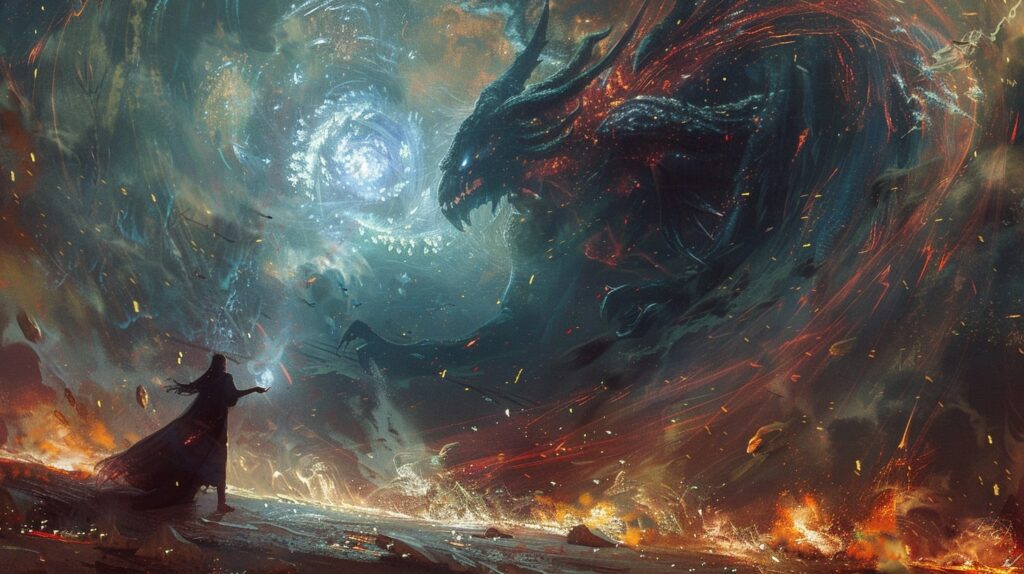
Levels of Power
In the intricate world of magic systems, understanding the levels of power is vital for creating a captivating and cohesive narrative. The existence of varying power levels adds depth and complexity to your magical world, providing opportunities for conflict, growth, and intrigue. Let’s explore the different power levels in magic systems and how they contribute to the hierarchy of power and abilities.
Different Power Levels in Magic Systems
Magic systems often incorporate a range of power levels, which can be categorized based on the strength and scope of magical abilities. These power levels determine the extent to which a magic user can manipulate the magical forces within your world. Here are some common power levels that you can consider when designing your magic system:
| Power Level | Description |
|---|---|
| Novice | Novice magic users possess basic magical abilities and are still learning to harness their powers. They have limited control and understanding of magic. |
| Apprentice | Apprentices have progressed beyond the novice stage and are honing their skills. They can perform more complex spells and demonstrate greater control over their abilities. |
| Adept | Adepts have reached a higher level of mastery and possess a wider range of magical abilities. They can execute advanced spells with precision and have a deeper understanding of magical theory. |
| Master | Masters are highly skilled magic users who have achieved a profound understanding of their craft. They can perform intricate spells, manipulate powerful forces, and even create new magical techniques. |
| Legendary | Legendary magic users are the pinnacle of magical prowess. Their abilities surpass those of ordinary practitioners, and they are often revered or feared for their extraordinary powers. |
It’s important to note that these power levels are not exhaustive and can be further customized to suit your magic system’s unique characteristics and requirements. By establishing distinct power levels, you can create a sense of progression and hierarchy among magic users, allowing for compelling storytelling and character development.
Hierarchy of Power and Abilities
The power levels within a magic system often contribute to the overall hierarchy of power and abilities. This hierarchy determines the social, political, and cultural dynamics within your magical world. Higher-ranking magic users may hold positions of authority, serve as mentors or leaders, and influence the course of events. Conversely, those with lesser power may face discrimination or seek to rise through the ranks.
The hierarchy of power can also influence the availability and accessibility of certain magical abilities. For example, rare and powerful spells may only be accessible to those who have reached a certain power level or have undergone specialized training. This creates a sense of exclusivity and aspiration within your magic system.
It is important to establish the rules and limitations of your magic system to maintain balance and prevent characters from becoming overpowered. Consider incorporating checks and balances that restrict the use of higher-level magic, such as the need for rare resources, the toll of using immense power, or the potential for unintended consequences.
By carefully constructing the levels of power and the hierarchy of abilities in your magic system, you can add depth, conflict, and intrigue to your storytelling. It is an opportunity to explore the dynamics between magic users, their aspirations, and the impact of their abilities on the world around them.
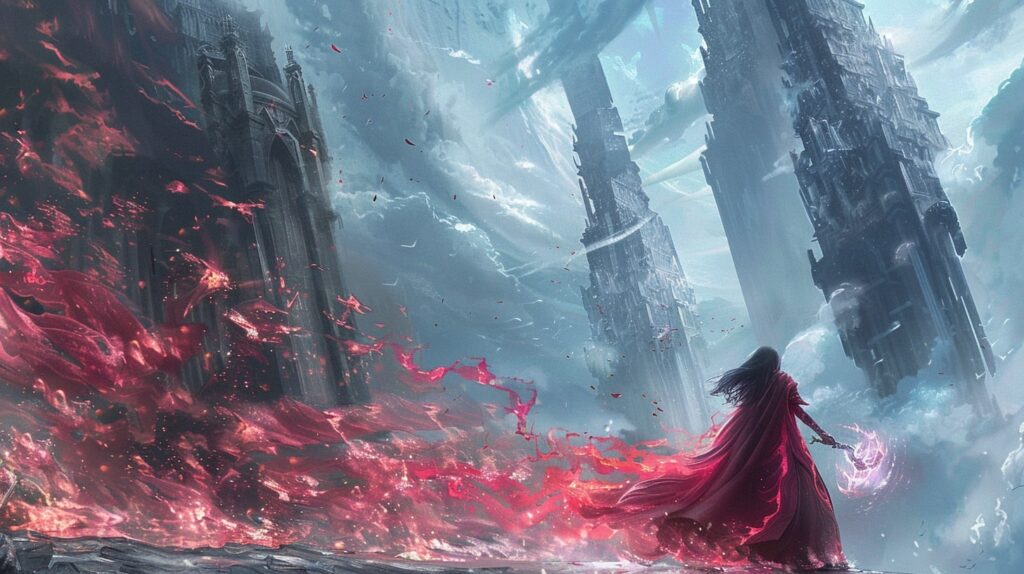
Categorizing Magic Users
In the enchanting realm of magic systems, categorizing magic users is an important aspect of worldbuilding. This classification helps define the abilities, roles, and characteristics of individuals who possess magical powers. By understanding the types of magic users and their ranking, you can create a rich and diverse magical world. Let’s delve into the two key aspects of categorizing magic users: types and rankings.
Types of Magic Users
Magic users come in various forms, each with their own unique abilities and specialties. Here are some common types of magic users you can consider when crafting your magical world:
Elementalists: These magic users manipulate the forces of nature, harnessing the power of elements such as fire, water, earth, and air. They can summon and control elemental forces to their advantage. For more inspiration, check out our article on elemental magic system.
Diviners: Diviners possess the ability to foresee the future or gain insight into hidden knowledge. They often use divination tools such as tarot cards, crystal balls, or scrying mirrors to tap into their mystical abilities.
Sorcerers: Sorcerers are skilled in casting spells and performing rituals to manipulate reality. They draw their power from arcane sources and often spend years mastering the intricacies of magic. For ideas on different types of magic systems, visit our article on types of magic systems.
Shapeshifters: These magic users have the ability to transform their physical form into that of another creature or object. They can seamlessly blend into their surroundings or assume different identities, making them masters of disguise and stealth.
Healers: Healers possess the power to mend injuries, cure ailments, and restore vitality. They channel their magic to promote physical and emotional well-being, offering hope and relief to those in need.
These are just a few examples, and the possibilities for magic user types are vast. Feel free to explore unique combinations and hybrid forms to make your magical world truly captivating. For more inspiration, check out our article on magic system examples.
Ranking and Classifications
In addition to types, magic users can also be classified based on their rankings within the magical hierarchy. Ranking systems can be hierarchical, based on levels of power or mastery, or they can be structured around specific roles or affiliations. Here are a few common classifications you can consider:
Novices: Novices are magic users who are new to their craft and are in the early stages of learning and developing their abilities. They often require guidance and training from more experienced magic users.
Apprentices: Apprentices have progressed beyond the novice stage and are under the tutelage of a master or mentor. They continue to refine their magical skills and knowledge while assisting their mentor in various tasks.
Adepts: Adepts are proficient magic users who have achieved a certain level of mastery in their magical abilities. They are capable of performing complex spells and are often sought after for their expertise.
Masters: Masters are highly skilled and knowledgeable magic users. They have honed their magical abilities to a remarkable degree and are capable of wielding immense power. Masters often play significant roles in the magical world, serving as teachers, leaders, or guardians.
Elders: Elders are revered magic users who have reached the pinnacle of magical mastery. They possess wisdom and experience, and their knowledge is sought after by those seeking guidance and counsel.
These classifications can add depth and hierarchy to your magic system, creating a sense of progression and growth for your magic users. Remember to consider how these classifications interact with each other and influence the dynamics within your magical world.
By categorizing magic users into different types and rankings, you can create a diverse and captivating magical world. These classifications can influence the roles, abilities, and interactions of your characters, adding depth and richness to your storytelling. So, unleash your imagination and let the magic flow as you develop the magic users in your world!
Impact on Storytelling
When crafting a magic system hierarchy for your fantasy world, you are not only shaping the rules and mechanics of your magic system, but also influencing the narrative itself. The hierarchy of power and abilities within your magic system can have a significant impact on the storytelling and the experiences of your characters.
How Magic System Hierarchy Influences the Narrative
The way you structure the hierarchy of your magic system has the potential to shape the dynamics and relationships between characters in your story. It can create a sense of hierarchy and establish power dynamics that drive the plot forward. A well-defined hierarchy can provide a framework for conflicts, challenges, and character development.
For instance, a rigid magic system hierarchy where individuals with higher ranks possess greater powers can set the stage for power struggles and rivalries. This can create tension and conflicts between characters vying for higher positions or seeking to challenge the existing power structure. On the other hand, a more egalitarian magic system hierarchy, where power is distributed more evenly, can lead to cooperation and teamwork among characters with different strengths and abilities.
The magic system hierarchy can also affect the motivations and goals of your characters. Characters may strive to climb the ranks and gain more power within the hierarchy, seeking recognition or seeking to change the system itself. It can provide a driving force for character arcs and plot progression.
Creating Conflict and Tension
One of the key benefits of a well-developed magic system hierarchy is its ability to create conflict and tension within your narrative. The disparities in power and abilities among characters can fuel envy, rivalry, and even resentment. Characters may be driven by their desire to attain higher ranks, leading to competition and clashes.
Moreover, the existence of a magic system hierarchy can introduce obstacles and challenges for your characters. Those with lower ranks may face discrimination or be underestimated by those in higher positions. This can create a sense of injustice and provide opportunities for character growth and triumph over adversity.
By carefully crafting the hierarchy within your magic system, you can weave a rich tapestry of conflicts, tensions, and power dynamics that enhance the depth and complexity of your storytelling.
As you delve into the intricacies of your magic system hierarchy, remember to consider the implications it has on your narrative. Think about how it influences the relationships between your characters, their motivations, and the conflicts they face. By integrating the magic system hierarchy effectively, you can enhance the depth and engagement of your story, captivating readers with its unique dynamics and compelling character journeys.
Developing Your Magic System Hierarchy
Designing a magic system hierarchy for your fantasy world is an exciting and crucial part of worldbuilding. It adds depth and structure to your magical elements, providing a framework for how magic is organized and wielded. Here are some considerations to keep in mind when developing your own magic system hierarchy.
Considerations for Designing a Hierarchy
Power Distribution: Determine how power is distributed among magic users in your world. Will there be a clear distinction between high-ranking individuals and those with lesser abilities? Consider the factors that contribute to power levels, such as innate talent, training, or access to rare resources.
Hierarchical Structure: Decide on the structure of your magic system hierarchy. Will it be a linear hierarchy with clearly defined levels, or will it be more fluid and decentralized? Think about how different ranks or classes interact with each other and the roles they play in society.
Limits and Restrictions: Establish limitations and rules within your magic system hierarchy. Are there certain spells or abilities that are exclusive to higher ranks? Are there any restrictions placed on magic use, such as the need for specific rituals or the consumption of rare ingredients? Setting boundaries adds depth and realism to your magic system.
Specializations: Consider allowing magic users to specialize in specific areas of magic. This can create diversity within your hierarchy and provide opportunities for unique abilities or expertise. For example, some magic users may focus on elemental magic while others specialize in healing or illusion.
Balance and Countermeasures: Think about incorporating checks and balances within your magic system hierarchy. Are there countermeasures or limitations in place to prevent abuse of power? This can add tension and conflict to your story, as characters navigate the consequences of their magical abilities.
Balancing Complexity and Coherence
As you develop your magic system hierarchy, it’s important to strike a balance between complexity and coherence. While you want your hierarchy to be rich and intricate, it should also be easily understandable to readers.
Consider creating a magic system diagram or flowchart to visually represent the hierarchy. This can help you visualize the relationships between different ranks or classes and ensure consistency in your worldbuilding.
Remember to keep your magic system hierarchy in line with the overall themes and tone of your story. It should enhance the narrative and contribute to the world you’re building rather than feeling like an arbitrary addition.
For more inspiration and guidance on developing your magic system hierarchy, check out our articles on magic system concepts and magic system development. Don’t be afraid to experiment and be creative, as the possibilities for magic systems are endless in the realm of fantasy storytelling.
